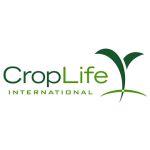In a recent fireside chat, Emily Rees, the President and CEO of CropLife International, engaged in a conversation on the critical connection between climate change and global agriculture. The fireside chat offered valuable insights into the challenges faced by farmers and the necessary steps to ensure sustainable and resilient agricultural practices.
Climate change and agriculture
Addressing the impact of climate change on global agriculture, Emily highlighted the vulnerability of agriculture to extreme weather events. With the current year marked as the hottest on record, farmers face increasing challenges such as droughts, floods, and the rapid spread of pests and diseases. Emphasising the need for adaptation strategies, Emily underscored the importance of climate-smart solutions, including new breeding techniques and integrated pest management. She also highlighted the importance of addressing the challenges farmers face on the frontline.
As the population of the world increases in this situation of climate shocks.That’s going to start affecting us every year more…we need new solutions to bring to the field to ensure that we are not losing yields.”
Emily Rees, Croplife International
As the conversation shifted to greenhouse gas emissions deriving from food systems, Emily urged for a comprehensive approach to reducing emissions across the entire agricultural value chain. Acknowledging the ambitious targets set by the Paris Agreement, she emphasised the necessity for collaboration among stakeholders. From inputs and transportation to logistics and packaging, Emily called for integrated efforts to achieve significant reductions in greenhouse gas emissions. In this context, she underlined the role of biotechnology and plant breeding techniques as essential components of the solution.
Leadership in sustainable agriculture post-COP28
The fireside chat also touched upon the need for G20 leaders to support research in climate-resilient agriculture. Emily highlighted the significance of collective action on an international level, pointing out that the G20 represents a significant portion of global agricultural producers. She called for the integration of discussions from COP28 into national contributions and adaptation plans. Emily expressed optimism about Brazil’s role in catalysing global discussions on sustainable agriculture under its presidency.
Comparing the focus of previous climate talks to COP28, Emily noted and praised the significant shift in the recognition of food systems as a core theme in addressing climate change. She highlighted the growing momentum from various stakeholders, including business organisations, farmers, and civil society, urging governments to continuously prioritise agriculture and food systems in adaptation and mitigation strategies.
Calls to action for leaders
As the fireside chat ended, Emily conveyed a key message for governments, stakeholders, and the international community. She emphasised the need for a more consolidated integration of agriculture and food systems into the climate change agenda. Emily mentioned her anticipation of the upcoming 13th Ministerial Conference (M13) of the World Trade Organization in Abu Dhabi, seeing it as a crucial platform to discuss how climate change issues can be woven into trade discussions. She also recognises trade as a catalyst for addressing climate challenges in agriculture and called for increased agility in shifting food across borders to enhance global resilience.
Today, with these climate shocks that we’re mentioning here, a food exporter or a big agricultural exporter can get hit by an unpredictable weather pattern that impacts its productivity. And with that, we’re going to need to be able to shift food from one part of the world to another, with much more agility…we need to therefore create more local resilience, we need to increase productivity levels worldwide.”
Emily Rees, cropLife International
Insights from the fireside chat with Emily Rees underscore the intricate relationship between climate change and agriculture and underline the importance of collaborative and proactive measures on both national and international levels. Emily’s call for integrating agriculture into broader climate discussions sets the stage for a more holistic approach to address the challenges and opportunities available to the intersection of agriculture and climate change.
Watch and share your thoughts on the fireside chat here.
Header photo: Leo Alfonso / ILO



